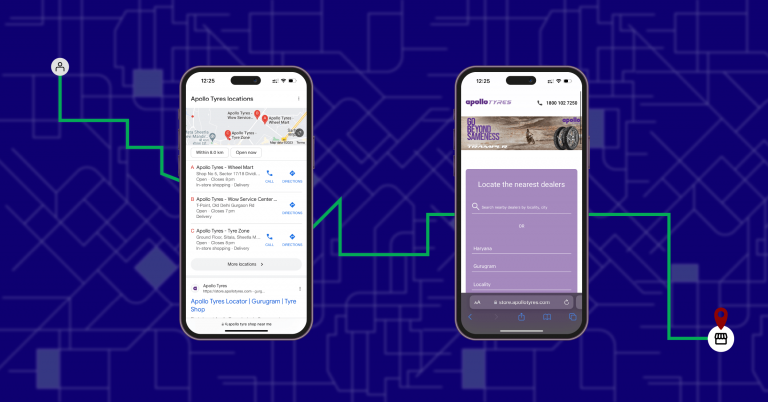Businesses have increasingly recognized the need for an online presence. In fact, with the rising usage of mobile devices and digital technologies, we have reached a stage where 56% consumers do online research on their mobiles, about products, before making a purchase (source: Mint).
For brick-and-mortar businesses, especially those that have multiple physical locations, managing digital local listings and location pages has become crucial to attracting and retaining consumerss. These two components are often viewed as two separate entities, but in reality, they actually share a symbiotic relationship, working together simultaneously to enhance a brand’s visibility, credibility, and accessibility.
So, let’s explore the significance of local business listings and location pages and how they complement each other in this vast digitally connected world.
Local listings are digital representations of a business’s physical unit on various the web. They comprise multiple pieces of critical information such as Name, Address, Phone Number (NAP), operating hours, and more. Today, when consumers search digitally for accessible and convenient solutions, it is these local listings which pop up and bring business information to consumers offering answers to their queries. This is a great way to keep consumers assured.
From enhanced user experience to credibility and trust, local listings are crucial for every business, as they serve various purposes. In addition to this, local listings are also a critical part of achieving better search rankings strategies. For local businesses in particular, search rankings are a pivotal factor, as it enables them to be able to form deeper assosications with local consumers, stay ahead of the competition, and build a stronger hold in local markets.
The digital consumer journey starts with a search which lead consumers to local business listings. And it is the local listings that take consumers to the local web pages of businesses, which then allows consumers to easily gain more knowledge about the businesses.
Location pages can be described as individual web pages dedicated to specific physical locations or branches of a business. They typically include detailed information about a particular store or outlet, such as its unique address, phone number, consumer reviews, available inventory, store-specific promotions, and more.
Local business listing sites allow businesses to tailor content and promotions to each location’s target audience, thus creating a more personalised experience for the consumers. Think of it as a red carpet for the local audience, with the help of which you get to display that you truly understand and care about their needs and demands.

Multi-location businesses are susceptible to fierce competition both from local as well as national competitors. Simply hoping that basic local ranking strategies would be good enough, would not cut the deal.
Instead, such businesses need a more customized approach to optimize their online presence bearing in mind how search algorithms function, and build the right kind of balance across the consumer journey.
Consistency
Always remember that consistency is the key to every success. In this aspect, it refers to maintaining accurate and consistent NAP and other relevant information in local business listings across the web, so your target audience can easily locate and contact your business. Location pages, in turn, reinforce this consistency by providing more detailed and additional information about local businesses.
Trust and Credibility
Comprehensive local business listings help to establish trust with potential consumers. It instills a sense of positive perception in the minds of consumers. When users find a location page with detailed information and positive reviews, it further strengthens the credibility of businesses.
Contribution to local search rankings
Optimizing location-specific webpages with relevant keywords, structured data, accurate meta tags, and high-quality content can enhance your search engine ranking. Local business listings also contribute to local ranking efforts, making it simpler for potential consumers to find businesses in local searches. This has become increasingly important with brands realizing that it is the local outlets that are the last mile, and where eventual business happens. Hence, for local outlets and businesses to be easily visible online, where most consumers are to be found today, such local search rankings are given massive importance.
Enhanced User Experience
Lastly, both local listings and location pages play a paramount role in enhancing the overall experience of consumers. Local listings initially provide essential information to users in search results, leading consumers to the respective location pages of businesses. Location pages then offer a deeper level of engagement by offering in-depth information, promotion, and a personalized touch. This covers the entire consumer journey, which today starts from a digital search. .
Wrapping it all up, local listings and location pages play integral roles in a business’s online presence and local marketing efforts. They are not two isolated elements; instead, they are a critical combination powering a business’s modern-day digital existence. When optimized and managed effectively, this combination can drive virtual visibility, engagement, and trust unlocking lucrative growth opportunities for businesses, in this highly volatile and competitive environment.